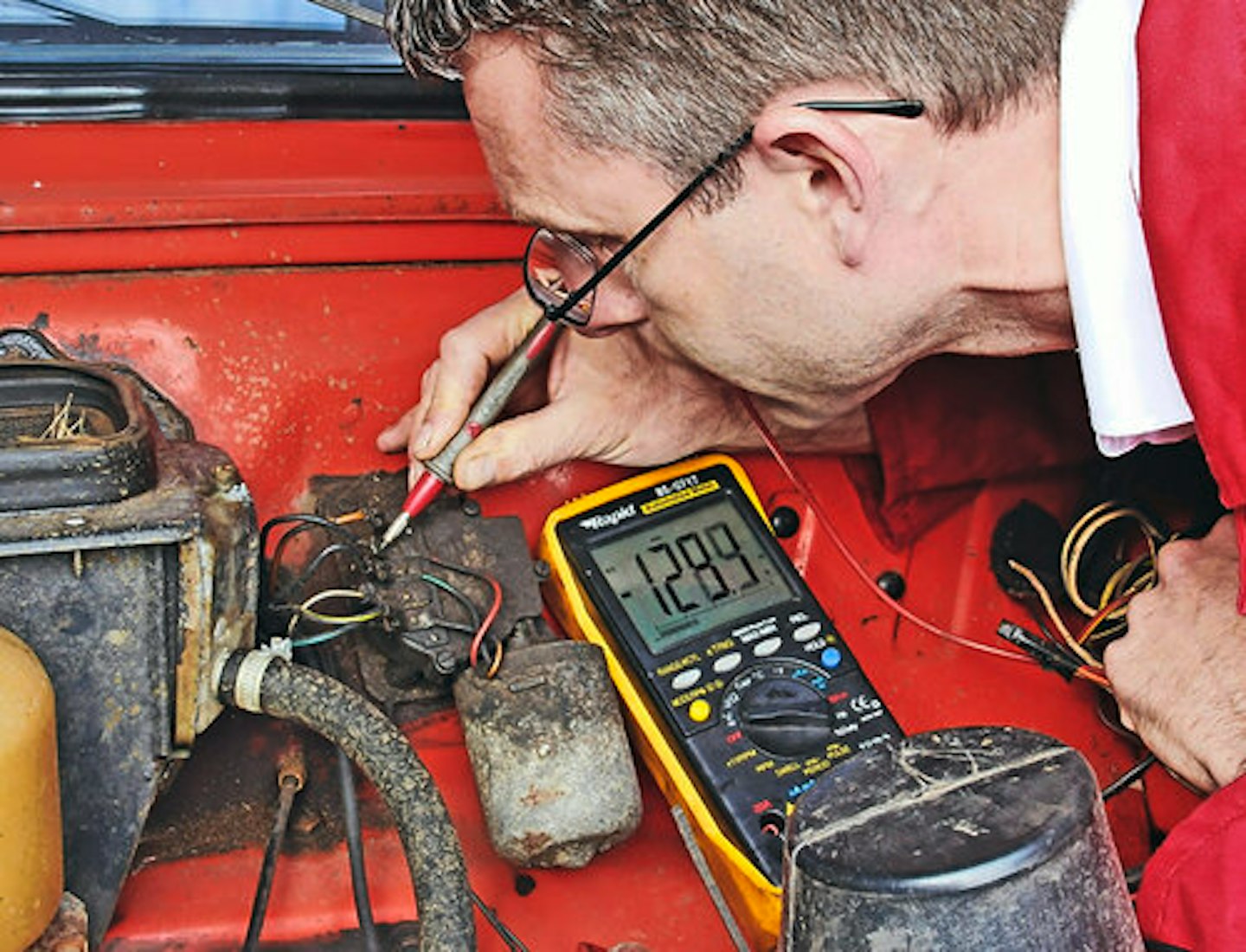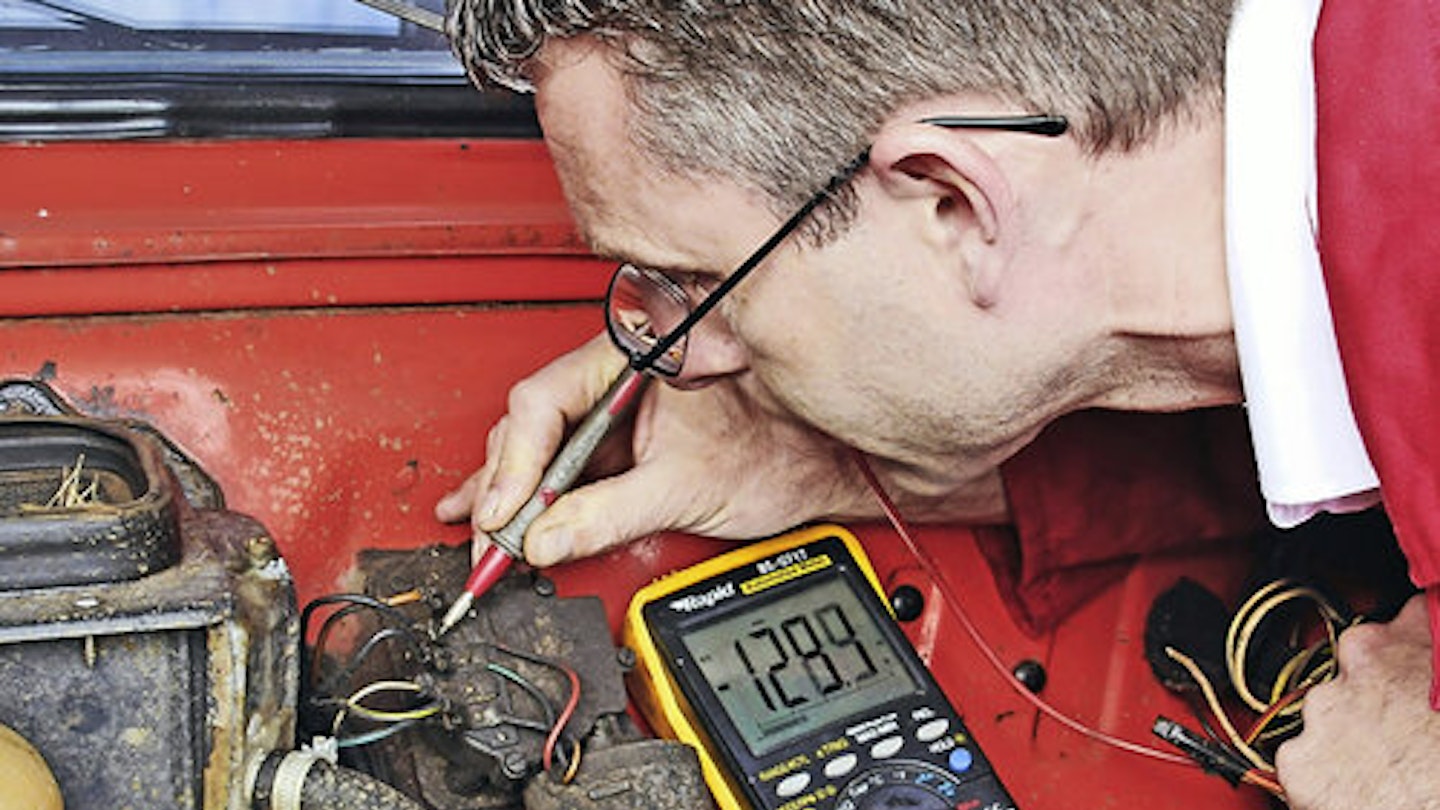Intermittent wipers are a very useful feature. Sadly, age and neglect mean that they commonly drop out of service. Fortunately, though, getting them working again is often quick, simple and free.

They operate by means of a control box, which sends a long pulse of current to the wiper motor. Once the wipers are part of the way up the screen, the pulse turns off and the self-parking facility takes over. The self-parking circuit completes the sweep of the screen and stops the wipers in their rest position until the next pulse arrives a few seconds later. If the system goes wrong, there’s a pretty good chance you can track down the problem and put it right yourself for little or no money.
There are two common types of control box: thermal and electronic. Their exact operation is quite complex, but this guide will equip you with the knowledge required to solve the majority of problems. There are many types of wiper motor, all with wholly different wiring arrangements. While the general principles of operation are the same across all types, you’ll need a good wiring diagram before you attempt major surgery. At the very least, make a note of which wires came from where. The self-parking facility is crucial to the correct operation of intermittent wipers.
FINDING BASIC FAULTS
NO ACTION AT ALL
If the wipers do nothing check the fuse, the thermal cutout on the unit (above) and all wiring. Check for jamming of the linkage. Is there voltage at the switch or motor; is the motor drawing current?

CONTINUOUS WIPE FAILS
If continuous wiping fails but intermittent works, look at the connections between the switch and motor. If sound, suspect failed switch contacts. If just one speed fails: check switch, wiring and motor.

INTERMITTENT FAILS
Check the wiring, connectors and switch contacts. If OK, suspect a faulty intermittent control box. If the wipers stop halfway, check wiring to the self-parking circuit from the switch and control box.

THERMAL CONTROL BOX
HOW IT WORKS
The wiper switch energises the main relay, turning on the wipers. It also starts to heat a small bimetallic contact strip, which bends and eventually cuts the supply to the relay. Self-park takes over.

WRONG OPERATION
No motion: check relay coil; clean contacts and bend the fixed contact to ensure correct closing. Continuous motion: check bimetallic strip contacts and ensure the winding around the strip is not broken.

WRONG INTERVAL
Wrong delay or too short a pulse (cutting off power before self-parking activates): bend fixed post of bimetallic contacts until correct operation is achieved. Close the contacts for a shorter delay.

ELECTRONIC CONTROL BOX
HOW IT WORKS
The unit works on the same principle as the thermal one, but delay and length of current pulse are set by a circuit using transistors or an integrated circuit. Timing may be preset or variable.

COMMON FAULTS
No motion: clean and check relay contacts; otherwise suspect circuit failure. Constant motion: circuit failure or a broken relay armature spring. Circuit failure: replace unit, but see next step first.

WRONG INTERVAL
Capacitors set the timing. These deteriorate with age. Fit replacements of the same value, but first – also in case of circuit failure – try re-melting all joints on the circuit board with a soldering iron.

